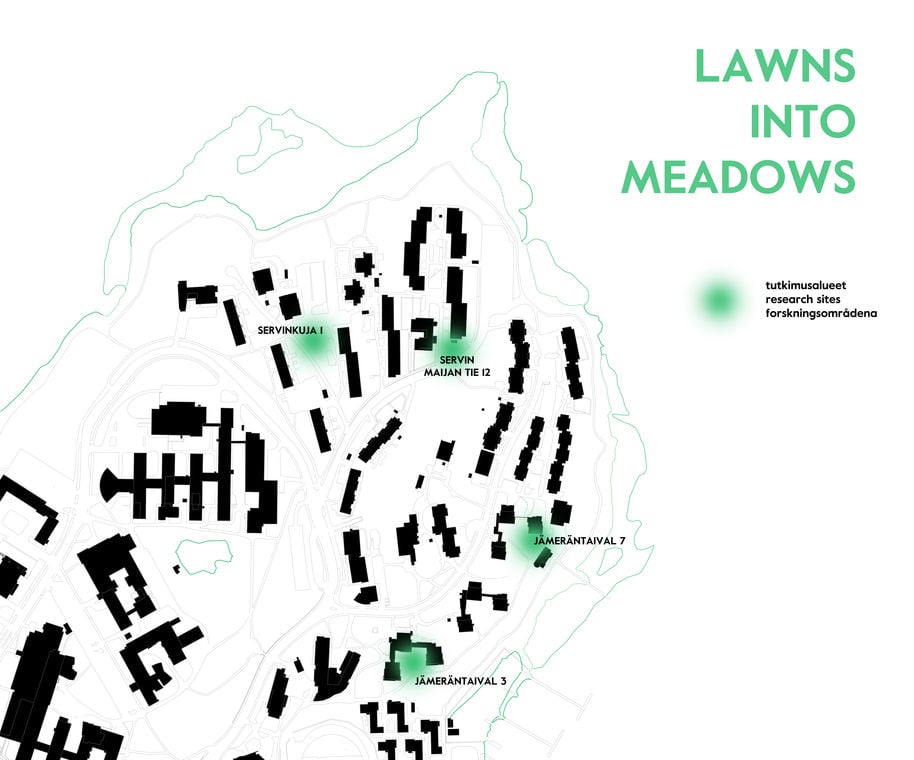Sustainable AYY
An environmentally sustainable and just student union establishes the framework for the best student life in the world, both now and in the future.
AYY is involved in a research project that investigates small-scale solutions to biodiversity loss and seeks new ways to implement ecological compensation through citizen actions. As a part of the Katoava luonto (eng. Fading nature) research project, AYY’s four 40-70 m2 lawn areas in Otaniemi will be converted from lawns to flower meadows in 2020-2023. During these three years, the Universities of Helsinki and Jyväskylä and the Finnish Meteorological Institute will carry out greenhouse gas measurements and study the species of each study site.

The goal of the transformation is to increase the number of plant species and thus also the number of pollinators in the research sites. Globally their numbers have threateningly decreased: more and more plant pollinator species are on the verge of extinction. This has serious consequences on food production, as more than three-quarters of the world’s most important food crops are at least partially dependent on animal pollination. Species that depend on pollinators include berries, fruits and many vegetables. Securing the habitats of pollinators can contribute to the success of pollinator species, while also creating more diverse environments for the residents.
The aim of the Katoava luonto research project, led by the University of Jyväskylä, is to find solutions to biodiversity loss and look for new and participatory ways of doing ecological compensation. The goal of the project is to increase knowledge about ecological compensation, which means compensating for the loss of natural habitats through restoring or creating new habitats elsewhere. Protecting biodiversity and our natural habitats is a key factor for our well-being: biodiversity and ecosystem services provide us with food and medicine, mitigate climate change and protect life from natural disasters and habitat changes.
You can get involved in the project e.g. by participating in the Lawns into Meadows workshops this fall (26.-27.9.) or by following the project’s website and social media pages on Facebook, Twitter and Instagram.


An environmentally sustainable and just student union establishes the framework for the best student life in the world, both now and in the future.



